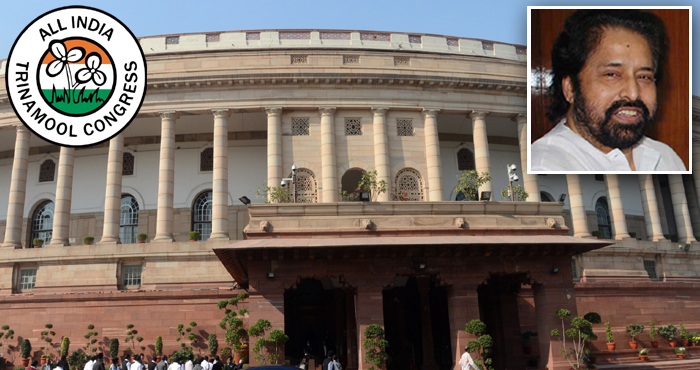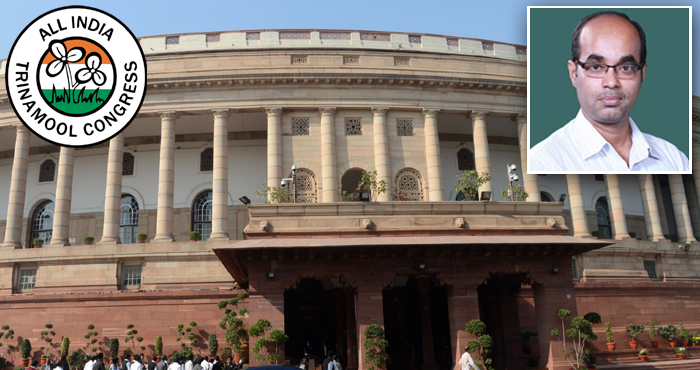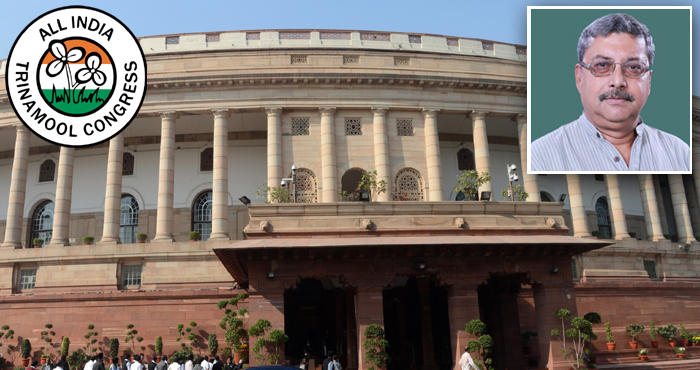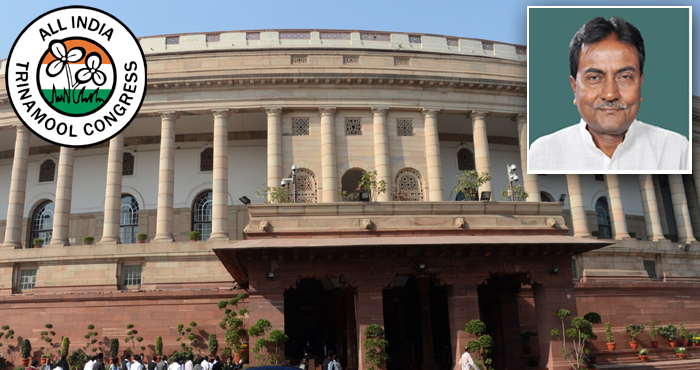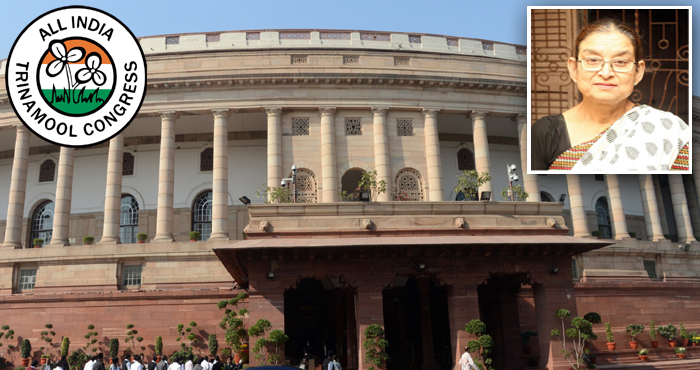FULL TRANSCRIPT
I rise to speak on the Insolvency Bankruptcy Code, Second Amendment Bill 2018. This Bill seeks to replace the Ordinance which was promulgated on June 6, 2018. Before I speak on the Bill itself, two points need to be mentioned. Nothing personal. I want to know if Mr Piyush Goyal is a caretaker Finance Minister or a full fledged Finance Minister, because this question has been raised that the Twitter handle of the Finance Ministry shows Mr Arun Jaitley as the Finance Minister. Sir, at the back of the Bill it is written, Shri Piyush Goyal, Minister of Railways, Coal, Finance and Corporate Affairs. So, what he speaks and what he says, I want this clarification to be made.
The other point I want to note is that yesterday there was a big victory for the Opposition in this country against this government. Mr Piyush Goyal in a letter to our Joint Committee on the Financial Resolution and Deposit Insurance Bill, said that they have decided to withdraw the Bill. This is the first time in the face of opposition by the Opposition the Government has withdrawn the Bill, about which there was very serious nationwide outcry. There were provisions where systemically important financial institutions would go into depositors money to bail in. Had that Bill been brought, the Opposition would not have to do anything, they would lose the election, anyway. So, good wisdom has prevailed on them, which is good. But I see it as a victory of the Opposition.
Thirdly, I remember, when the original Insolvency and Bankruptcy Code was brought to this House, Mr Jaitley wanted to pass it in a hurry. I had to speak for one hour that day; that Bill was referred to a Standing Committee and ultimately to a Joint Committee, and ultimately the Bill was passed and this Bill became a part of the law. Now I, do not know why within two years of having a new Bill which was drafted after much consultation, the Minister desires, or the Government wants, to bring in so many changes in the Bill which is only two years old. They did the same with the Companies Law. An Act which is not tested, they went in for a Amendment and they are doing the same with this.
Now this is not to say that there is nothing good about this amendment. One good thing is about the relief given to the home-buyers. They will be part of the financial creditors. The Bill clarifies that the allottees in real estate projects will be considered as financial creditors. Now I was wondering if this collides with the Real Estate Regulation Act (RERA) where also there is a regulator because it has been found that wherein RERA its limited; it is limited to one construction company. But as one of my friends explained to me that if it comes under this Bill then the whole company will be affected, like Jaypee. Jaypee is not giving flats in Greater Noida to people who have deposited money. Now this Bill will allow the flat allottees to claim their money as creditors and maybe they can get the money back. This is a good point in the Bill.
The weakness of the Bill is that it establishes the rights of the rich over the ordinary people. Because the unsecured creditors will be finished with this Bill. That has not been defined but a said company has dues to many small people, small suppliers, small traders; now if you give 51% resolution then only the big capitalists will get their due and unsecured creditors will get nothing. Another thing about the Bill I will point out in details later is that this Bill seeks to create a monopoly. You see Tatas are buying Bhushan Steel; which means what? Two or three steel companies like the Tatas, Jindals, they will gobble up all the steel industry then they will form a cartel and control the steel prices. Like Mr Gadkari had said recently about cement companies that they are cartelising the industry. This cartelisation will take place in the steel industry through this Insolvency and Bankruptcy Code.
The other good point about this Bill is that, for the first time it covers the MSMEs. Earlier MSMEs were not fully touched, the Bill states that the ‘eligibility criteria of the resolution applicants regarding NPAs and guaranters will not apply to person applying for resolution of MSMEs. The Central Government may modify or remove other provisions of the code while applying to MSMEs. Normally, there would not be many buyers for MSMEs. Unless you give some concessions to MSMEs, which employ large number of people will just be left closed. So this inclusivity is a good step in this matter.
Then, one of the dangerous part of the Bill – I will go into later how it has affected – is voting thresholds of the creditors. The code specifies that “all decisions of the committee creditors be taken by majority of at least 75 per cent of the financial creditors.” This Bill lowers the threshold to 51 per cent, and for certain key decisions voting threshold has been reduced from 75 per cent to 66 per cent. These include appointment and replacement of the resolution professional and approval of the resolution plan. This is dangerous for corporate democracy, as I will show later.
Sir, I need not go into the actual details of the position of the banking industries. We are in the worst crisis and there is a slow push towards denationalisation of banks. There are 963 wilful defaulters who together owe Rs 1.1 lakh crore to banks, according to a Government reply. Banks are in dire trouble. Now the Reserve Bank has stepped in and they have introduced what is known as Prompt Corrective Action (PCA). What does that mean? The Reserve Bank has asked certain banks to not expand, that is, open new branches. They have told a bank like Dena Bank that you cannot lend at all. What will banks do if they cannot lend? A bank’s income comes from lending the money of depositors. Now in order to save banks, the Reserve bank is introducing PCA – which implies that you don’t lend at all. They say that they see some hope in the IBC.
Now the moot question is whether IBC is the solution. What is IBC leading to? IBC is leading to crony capitalism. I’ll give you a few examples. Let us see Bhushan Steel, where the loan outstanding to NCLT was Rs 56,000 crore. The Tatas have taken over the company for Rs 35,200 crore. So, banks have lost Rs 21,000 crore, that’s a haircut of nearly 40 per cent. Is it resolution?
Look at Electrosteel. It has a factory in Bokaro. The dues to the banks were Rs 13,600 crore. Vedanta, of Anil Agarwal, has purchased it for Rs 5,320 crore. Banks sacrificed Rs 8,400 crore. Therefore, haircut is 60 per cent. In Bhushan Steel it was 40 per cent, in Electrosteel it is 60 per cent. Now comes Alok Industries. The company owes to the banks Rs 30,000 crore. Reliance has taken it over for Rs 5,000 crore. So, the banks sacrificed Rs 25,000 crore, leading to a haircut of 83 per cent. As one member said, this Ordinance was brought so that Reliance could acquire Alok Industries for a cheap price. The percentage of shareholders’ agreement required for the deal to go through was brought down from 75 per cent to 66 per cent. Just for the sake of Reliance, the government brought in an ordinance.
So, I said that maybe, some change in the IBC, which all parties participated in, is a good law. When the bankers come to us they say that only hope they have for recovering some money is in IBC. But the IBC is not a panacea. It is not a cure for all ills of the banking system. We have let the country into a morass, into a blind alley and I really do not know how we will overcome. And again, see, one of the strong points for IBC was that within 180 days corporate insolvency would be resolved. The Bill is essentially limited in the sense as it deals with only one part, the individual bankruptcy has not yet been started.
Sir, you will know that Part 3 of the code, which deals with Insolvency and Bankruptcy of Individuals and Partnerships, is yet to be commenced. So far the IBC deals only with corporates and their insolvency resolution.
So now, you see the case of Ruias, i.e. Essar Steel. Essar Steel has crossed 270 days. It is nearly one year now because both the companies which were bidding, Nu Metal and ArcelorMittal, belonging to Lakshmi Mittal, were found by the resolution professional to be ineligible to participate in the bidding process. Nu Metal, because of its association with Revanth Ruia, son of the promoter of Essar Steel, and ArcelorMittal because of it posed banker’s money in capacity as a promoter of Uttam Barwasni. So, one year… in spite of IBC specifying that within 180 days companies have to be resolved, it has not happened.
So, I would urge the minister, in the deepening gloom that surrounds the banking industry, putting the hard-earned money of the depositors at risk and putting the future of the country’s economy at risk, IBC may have been a shining light but if IBC continues in this way, in an effort to support crony-capitalism, in giving haircut <interruptions>
Sir, the other thing I would like to mention, that only 12 companies were referred to NCLT by Reserve Bank; another 30 have gone for liquidation. The problem is you are not resolving the companies.
So Mr Goyal, I would like this law to succeed, because as an Indian I cannot afford to see that our banking industry collapse. Please see that the haircut advantages do not go to the pockets of big moneybags.
Thank you, Sir.

